Two-party system not aligned with Nepal's political and cultural history: Chairman Prachanda
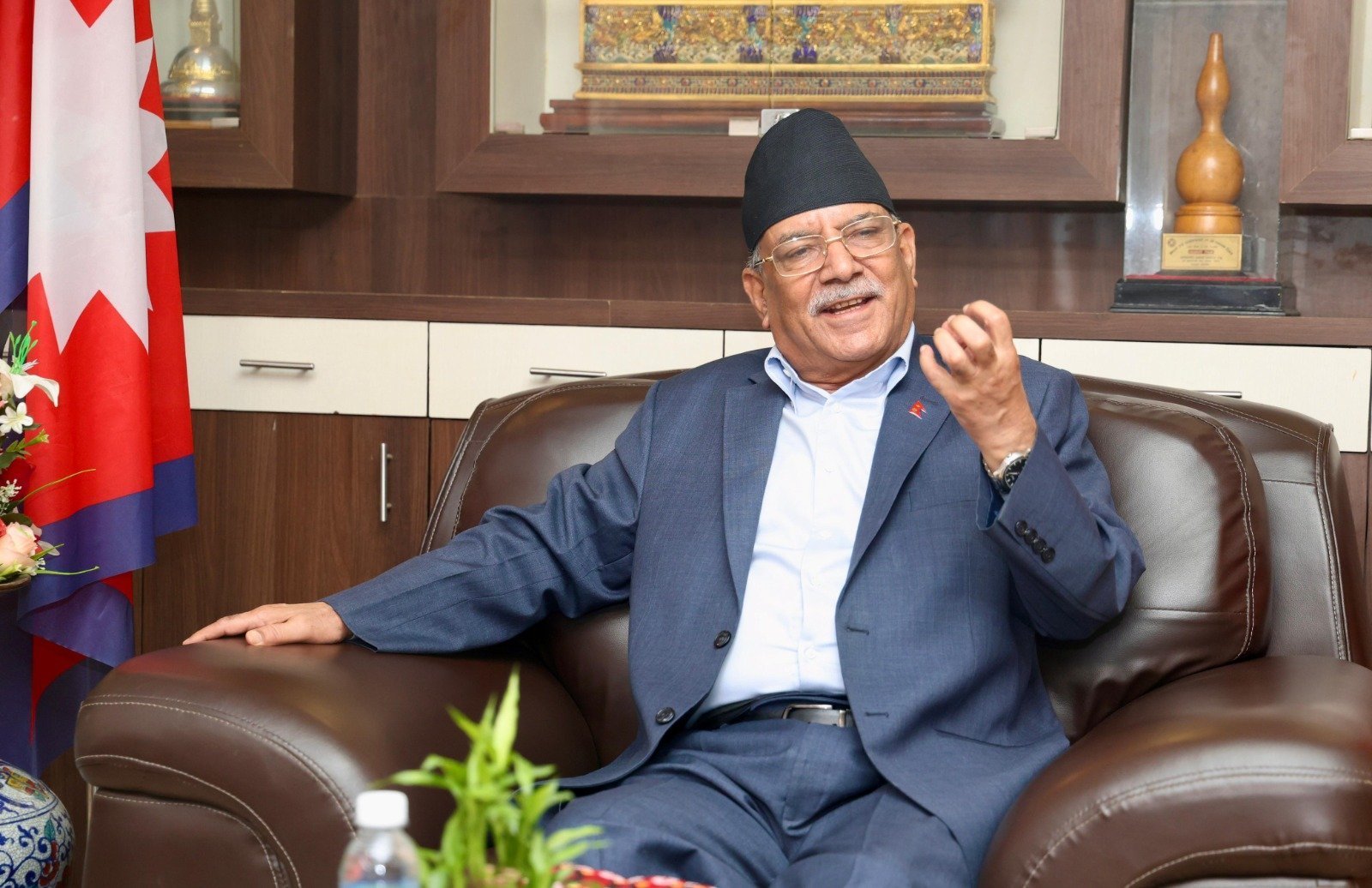
Today marks the ninth anniversary of the constitution issued by the Constituent Assembly. On this historic occasion, what would you like to say?
Today, the 3rd of Ashoj (September 19), is Constitution Day and National Day in Nepal. First of all, I would like to express my heartfelt congratulations and best wishes to all Nepali people, both within the country and abroad, who contributed to the drafting of the constitution on this historic day. I pay heartfelt tribute to the great martyrs who sacrificed their lives in various movements, including the great People's War, the historic people's movements, and the Madhesh movement, which brought the country to the point of drafting a constitution for a federal democratic republic. Additionally, I express my deep respect for all republican fighters, including the missing warriors, the injured, and the disabled.
We are going through a very challenging but also opportune phase in history. Celebrating Constitution Day means uniting the nation and the Nepali people against all forms of anarchy and authoritarian thinking. The federal democratic republican constitution has empowered the oppressed classes, castes, regions, genders, and communities of Nepal and has ensured proportional and inclusive representation to some extent in the state. It is our collective responsibility to move forward to further strengthen this.
Moving forward through the path of good governance, social justice, and prosperity toward building socialism will be our clear direction. We must resolutely advance to protect, utilize, and refine the rights granted to the people through the constitution, adapting to the changed circumstances. Our party is prepared to continue with this campaign through various programs. I sincerely appeal to the entire community to move forward with new enthusiasm, breaking through all forms of anarchy, corruption, disorder, and despair while maximizing the rights obtained by the people. I wish that this year's Constitution Day inspires all of us to implement the remaining tasks of the constitution with urgency and determination.
How do you view the historic background of the constitution being created by the Constituent Assembly for the first time in Nepal?
First, let's briefly discuss the background of the Constituent Assembly. The idea of drafting a constitution through the Constituent Assembly arose during the anti-Rana movement and other democratic movements. At that time, even King Tribhuvan mentioned the creation of a constitution through the legislative assembly upon his return from India. However, it was proven historically that the king’s statement was merely a ploy to deceive the people. Political parties gradually deviated from their earlier belief in drafting a constitution through the Constituent Assembly and began ignoring the issue. The main issue of the People's War, initiated under the leadership of the then CPN (Maoist), was indeed to draft a constitution through the Constituent Assembly, ensuring federal democratic republic status that included inclusive and proportional recognition.
Despite multiple rounds of negotiations with the government, we insisted on the Constituent Assembly as our bottom line. Therefore, the issue of drafting the constitution through the Constituent Assembly was central to the People's War.
I want to clarify the interpretation that all political parties jointly elected the Constituent Assembly and drafted the constitution is absolutely incorrect. If there had been no Maoist People's War, the issue of the Constituent Assembly would not have arisen, and the idea of declaring a federal democratic republic and issuing a constitution would have been out of the question. The historical fact is that it was because of the Maoist People's War that the country reached a point where a Constituent Assembly and a democratic constitution were possible. The main slogans of other political parties at the time were constitutional monarchy and multiparty democracy. There was no concept of a republic, a Constituent Assembly, or inclusivity.
While some parties later attempted to portray that they brought the Maoists into the mainstream, it is incorrect to overlook this historical fact. Their mainstream was constitutional monarchy, while the Maoists' mainstream was a federal democratic republic. Once the parliamentary parties abandoned the monarchy and entered the republic, isn't it crystal clearr who brought whom into whose mainstream? The historical fact is that only after the Maoists' republican agenda were parties like the Congress and UML able to participate in drafting the constitution.
What was the reason that the first Constituent Assembly could not promulgate a constitution?
The CPN (Maoist) was the first party to raise the agenda for the Constituent Assembly and sacrifice for it. Our attempt was to draft the most progressive constitution possible. However, unfortunately, the first Constituent Assembly could not draft a constitution. Many forces worked to undermine the first Constituent Assembly. Political forces favoring the status quo within the country did not want to create a constitution with progressive features, and foreign powers were also opposed to the creation of a leftist and progressive constitution in Nepal. As a result, the first Constituent Assembly was dissolved without issuing a constitution.
How was it possible for the second Constituent Assembly to draft a constitution in just two years after the first failed to do so in five years?
In April 2015, a major earthquake caused extensive damage. At that time, I was the leader of the opposition. There was concern that the constitution might not be drafted by the Constituent Assembly, leading to uncertainty about the country's direction. I reached the conclusion that we must draft a constitution to provide relief to the people's suffering. Therefore, I decided to assist the ruling party instead of remaining in opposition. I declared in the hall of the Constituent Assembly that I would fully contribute to the drafting of the constitution.
At that time, a dilemma arose regarding whether to maintain our old stance on the rights of the people or to find the maximum possible agreement with dissent. We agreed to move forward from the latter position, emphasizing that the country must reach federal democratic republic status and ensure inclusive proportional rights. After we maintained a minimum understanding and moved towards issuing the constitution, the Madheshi leaders protested, but I later created an environment for consensus and elections through constitutional amendments during the implementation phase. I take pride in being able to issue the constitution.
Regarding the implementation of the constitution entering its tenth year, how do you assess this aspect?
Some aspects of the implementation of the constitution have been smooth. Provincial and local structures have been established, and periodic elections are taking place. However, there remains much to be done to strengthen federalism in line with the essence and spirit of the constitution. Necessary laws for implementing federalism, such as the Federal Civil Service Act and the Police Adjustment Act, are yet to be formulated and, even if there are laws, they are not being effectively implemented. During my leadership, I registered several important bills to the parliament, but they have not yet been endorsed. The concepts of autonomous regions, protected areas, and special areas, clearly outlined in the constitution, have not been implemented.
For certain communities, such as the Sherpas, an autonomous region can be created even if a separate province is not established. Similarly, a protected area can be created for the Koch community in the east. My point is that it is appropriate to review the constitution only after its provisions have been properly implemented. It is unacceptable to blame the constitution while showing no interest in making the necessary laws for its implementation. We should only consider amendments if problems arise in the implementation phase; however, there is a tendency to discuss amendments while ignoring implementation, which is not acceptable. Just as necessary laws should have been made to strengthen the provinces and local governments, this has been hindered primarily due to a lack of political consensus.
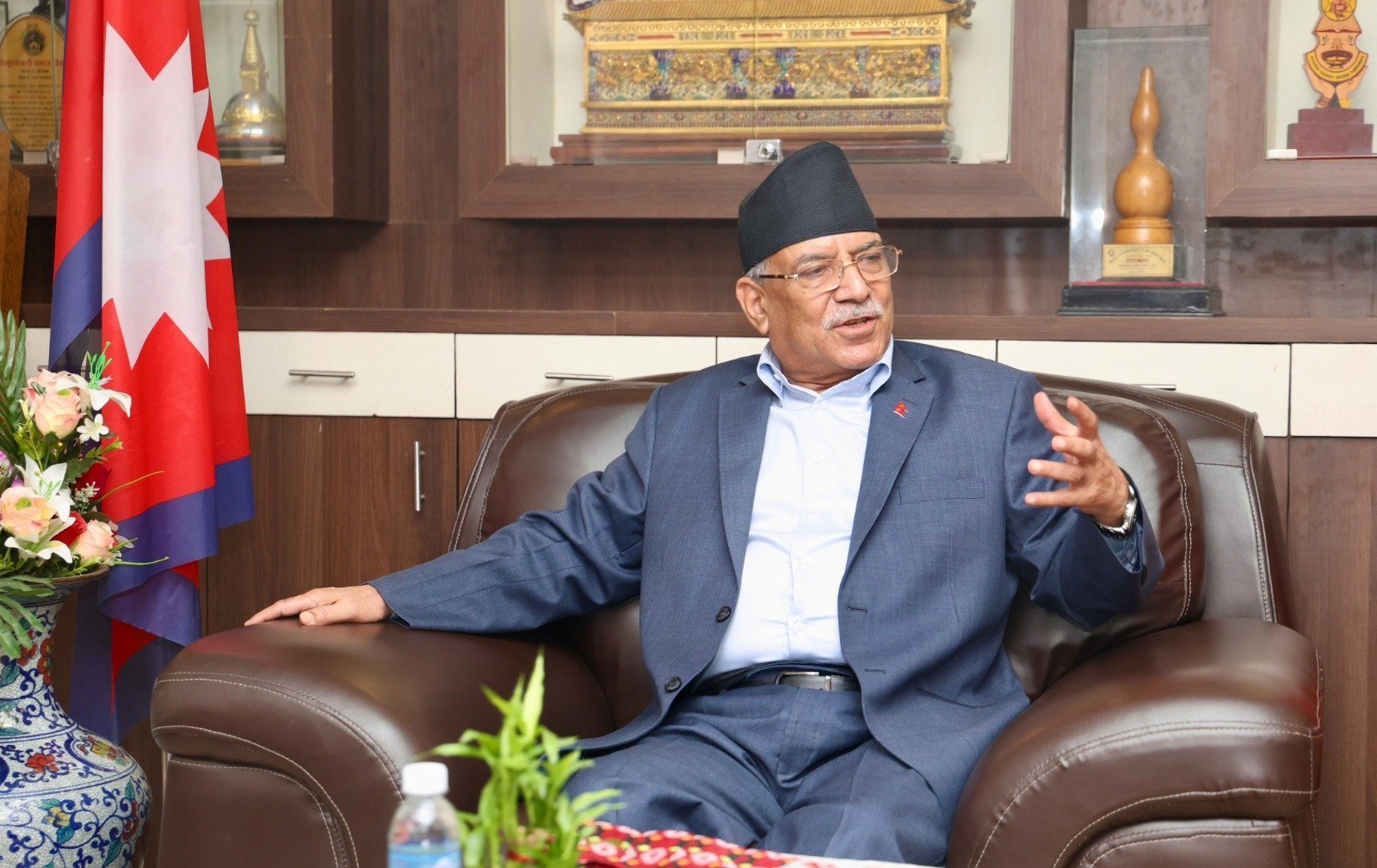
Shouldn't there also be agreement in the implementation of the constitution issued through consensus? Why are there ongoing issues?
The core issue is that the concepts of federalism, inclusivity, and proportional representation are not favored by some old allies. The leader of the CPN-UML and current Prime Minister KP Oli has openly stated that we only accepted what was forced upon us by the Maoists, and this is not our agenda. If a major party leader dislikes this change and claims it is due to others' coercion, how can the constitution be implemented easily? The real difficulty lies in the lack of uniformity among all parties regarding the understanding of the constitution, leading to implementation issues. Now, there is talk of amending the constitution instead of implementing it. The first and second parties have formed a government together, which does not happen in countries with competitive systems.
Currently, the Congress and UML have entered a new coalition with the primary agenda of constitutional amendment. If they intend to amend the constitution, what should be the basis and manner of doing so?
Firstly, I do not see any seriousness in their discussions about constitutional amendments as they formed the government. There is no evidence that they formed the coalition for the purpose of amending the constitution. The government, led by me, had initiated campaigns for good governance and both parties were scared as their leaders would have been implicated on corruption charges sooner or later. So, they formed a coalition overnight to stop the anti-corruption crusade. The public has quickly understood that the coalition between Congress and UML is not for constitutional amendments but to protect corrupt individuals. Secondly, if they wish to amend the constitution, we are not opposed to it. If it is for progress, that is acceptable; if it is for regression, it is not.
If the amendments are intended to deprive the people of their rights granted by the constitution rather than to add to them, that is not acceptable. We had different views on various issues when drafting the constitution through the Constituent Assembly. We have clearly stated the need for a directly elected executive head and a fully proportional electoral system. The current electoral system has become so costly that those elected tend to focus more on recovering election expenses rather than addressing people's issues. To end this, we advocate for a fully proportional electoral system. By ensuring full proportionality based on population, we can better guarantee the representation of all castes, regions, and communities. We are always ready for constitutional amendments if they lead to a directly elected executive head and a fully proportional electoral system.
Leaders of the ruling party are discussing a two-party system; is this feasible?
Advocating for a two-party system does not suit Nepal, particularly in the context of South Asia. This is not aligned with Nepal's political and cultural history. Such a move would lead toward authoritarianism and signify the death of democracy. After the constitution clearly states that Nepal will have a multi-party competitive governance system, who would advocate for a two-party system? A two-party system primarily seeks the freedom to engage in corruption; nothing else is feasible.
What do you say to the public's complaints that when parties focus on power, issues concerning people's livelihoods are neglected?
If the people's conditions do not improve according to the new system, it will undermine the legitimacy of the constitution. My leadership aimed to change the situation for the people. I firmly believe that addressing people's livelihoods can only be achieved by improving governance and service delivery in a country plagued by corruption. For example, we included hundreds of thousands of workers in the social security fund, resolved long-standing issues related to victims of loan sharks, and facilitated citizenship for thousands of stateless individuals.
Regarding good governance, the situation in Nepal was critical, and if left unaddressed, could lead to serious consequences. Many corruption cases were opened, and actions were prioritized against issues ranging from fake Bhutanese refugees to land mafia activities. We took these initiatives to validate the constitution. Even if we are not in federal or province governments, we will continue to raise awareness about livelihoods through community and public engagement, striving to make our local governance models effective in promoting good governance, livelihoods, and development.
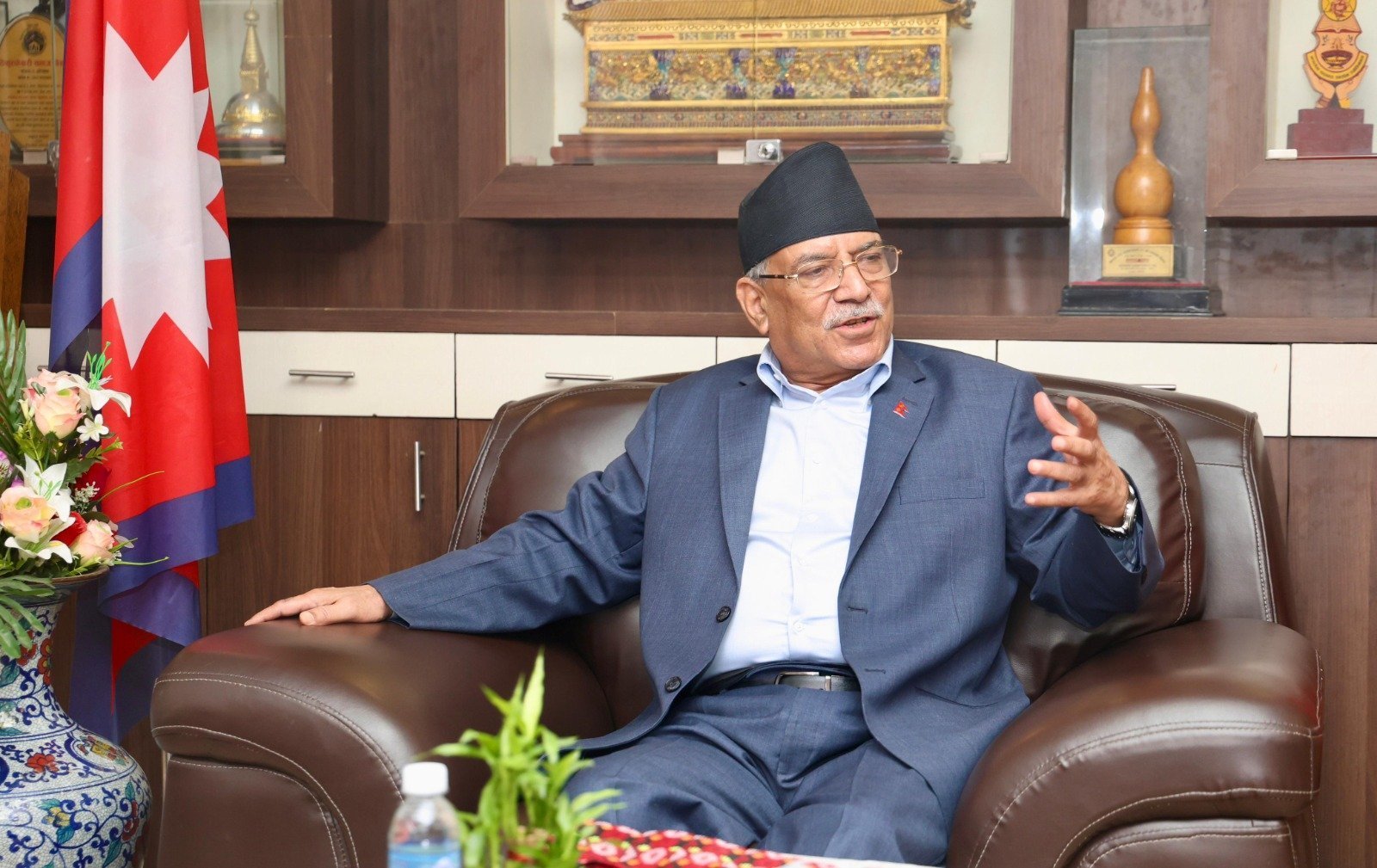
When discussing the implementation of the constitution, what is the next step for the Maoist Center?
From the outset, I emphasized that our party's path is to pursue socialism through good governance, social justice, and prosperity. The party believes that the revolution can progress only through the full implementation of the constitution, which establishes the rights of marginalized communities as fundamental and envisions a socialism-oriented economy. We are engaged in thorough discussions about additional programs to advance this agenda. Recently, we held provincial-level consultation meetings as a new approach. Since not everyone can speak at the central committee meetings, we visited all provinces to engage in intensive discussions with central members and provincial officials. During these visits, we also interacted briefly with local communities to discuss the current situation and future directions.
Important suggestions have emerged not just from leaders and party workers, but also from the grassroots level. People have expressed that the Maoists need to protect the constitution and launch a campaign to improve lives. I've sensed a strong public sentiment that it was a mistake to remove the Maoist-led government while it was actively combating corruption. During my travels across the country, I have observed a wave of sympathy for our cause. Recently, I visited Morang, Sunsari, and Jhapa, and particularly noted a strong interest in Jhapa. To further build on this growing enthusiasm, we will develop an action plan in our upcoming central committee meeting.
There are complaints that as people gain empowerment through the implementation of the constitution, party leaders and workers have distanced themselves from the public and started to behave differently from what the people expect. What measures do you plan to take to improve this situation?
To enhance the conditions of the people by accelerating the implementation of the constitution, it is crucial to change the working style of political leadership; this transformation must begin with us. We have already initiated change at some level. It is essential to create programs that foster connections with the people and to alter the leadership's approach so that it resonates with their experiences. As a transformative and honest force, the Maoist party must undergo significant changes. We have somehow become distant from the populace. However, by traveling across the country and listening to leaders, workers, and citizens, I have gained valuable insights.
The consultation meetings we are conducting nationwide are aimed at laying the groundwork for transformation. We are preparing to establish a revitalized party by synthesizing input from the central committee. While other parties may decline without serious consequences, the deterioration of the Maoist party would adversely affect the country since it currently operates on a Maoist agenda. If we present an agenda and fail to advance, it could lead the country toward decline. Therefore, transforming the Maoist party is essential to implement the people's agenda, and we will proceed with a clear action plan for that.
Now, a new generation is decisively emerging. The individuals born when you were elected to the Constituent Assembly and debated the constitution are now stepping into influential roles. How can we increase the universal acceptability of the constitution to address their concerns?
This is indeed a vital topic. Children born in 2008 are now reaching adulthood and becoming decisive voters in the upcoming elections. This generation, often referred to as "Generation Z" is not only technologically adept but also distinctly progressive in their views on social justice compared to older generations. I believe this generation, which strongly opposes discrimination based on class, caste, region, and gender, will lead efforts in good governance, social justice, and economic prosperity. They are particularly vocal against corruption, recognizing its detrimental impact on the nation.
Our focus on good governance has begun to attract this new generation. They recognize that Nepal’s economic prosperity cannot stem from traditional production systems. Being a tech-savvy generation, they understand that advancement requires digitalization across all sectors. This is a key aspect of our agenda, and we are actively working to implement it. The current fiscal year’s budget reflects this vision, emphasizing that prosperity hinges on empowering this generation. I made it clear in the budget: "Agriculture as a base, technology as a leader." Economic activities can be pursued with agriculture as a foundation, but information technology should drive all sectors. Consequently, we have introduced innovative concepts such as startups, IT hubs, and workstations to promote technological development with a focus on the new generation.
This approach does not imply that we are addressing only the new generation; rather, it shows that the Maoist leadership is particularly attuned to their needs. Additionally, we should be prepared to amend the constitution to facilitate the new generation's entry into politics, help them grasp its principles, and address their concerns as necessary. I am convinced that political, economic, and social changes can only be strengthened by trusting the new generation, and the upcoming programs of the party will reflect this commitment.


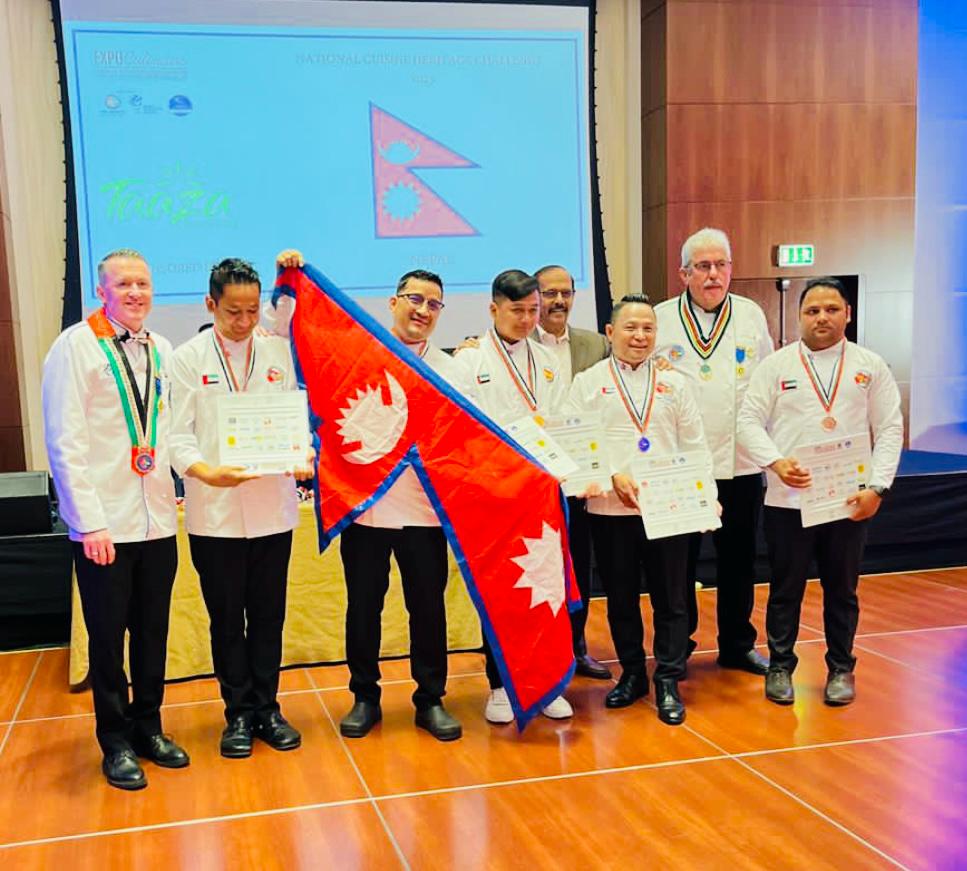
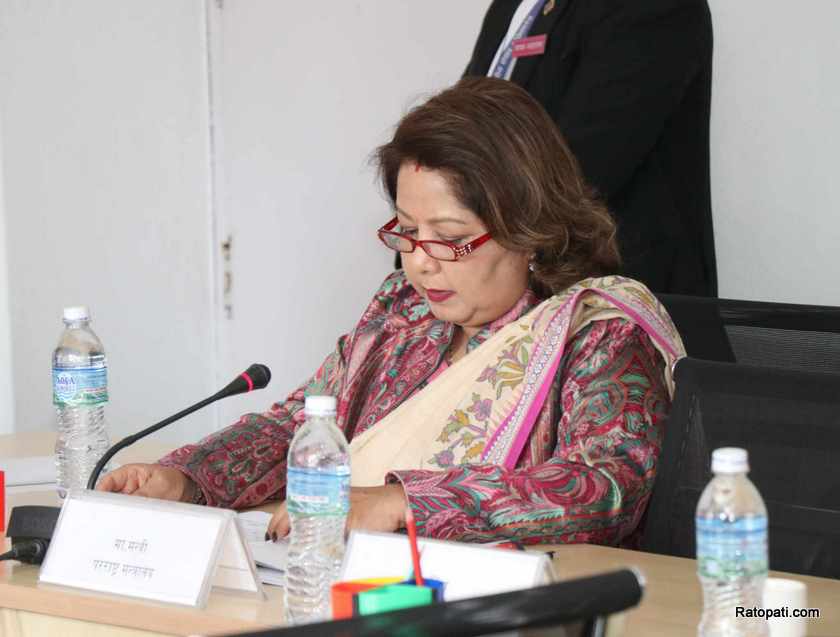


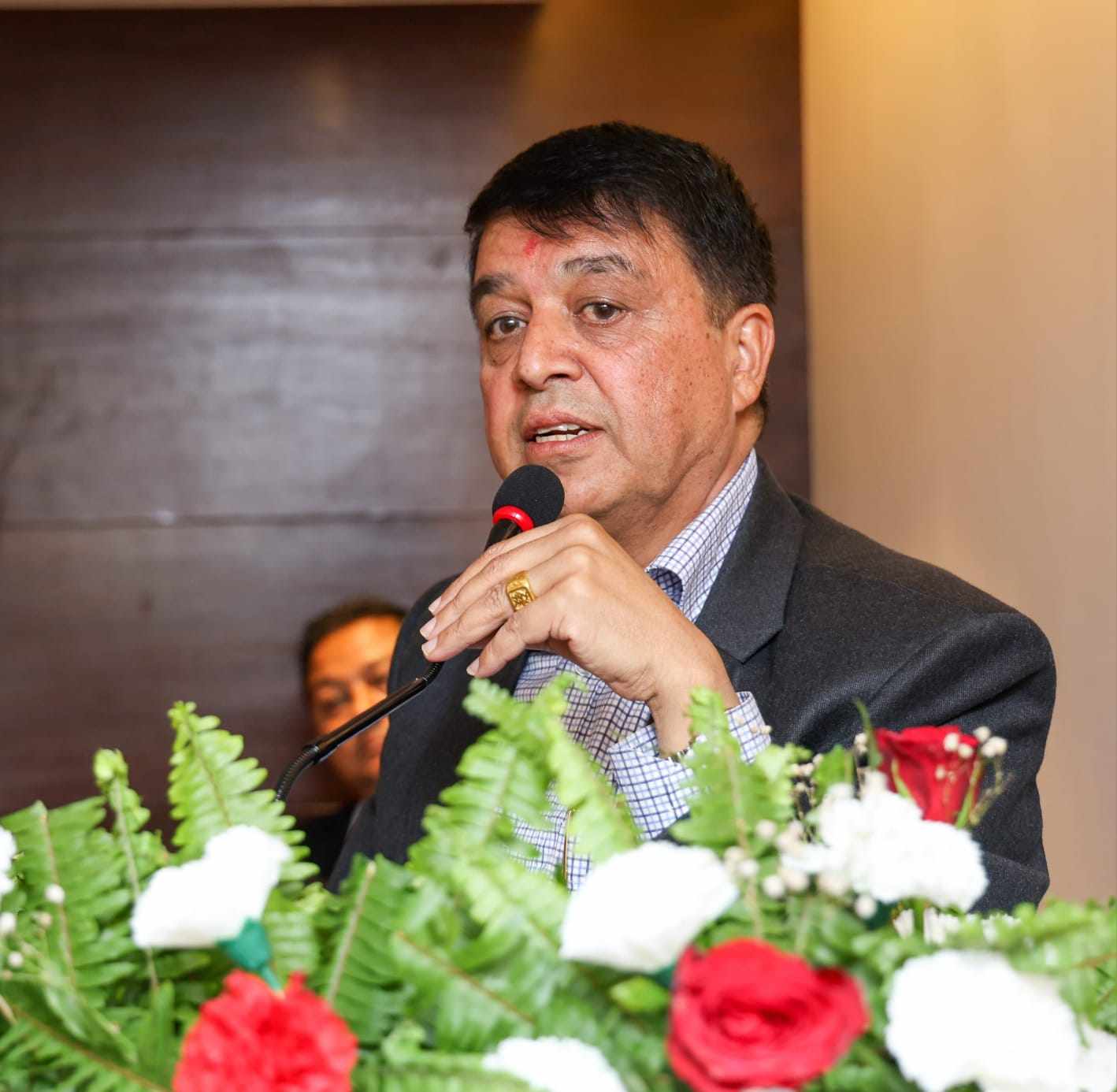
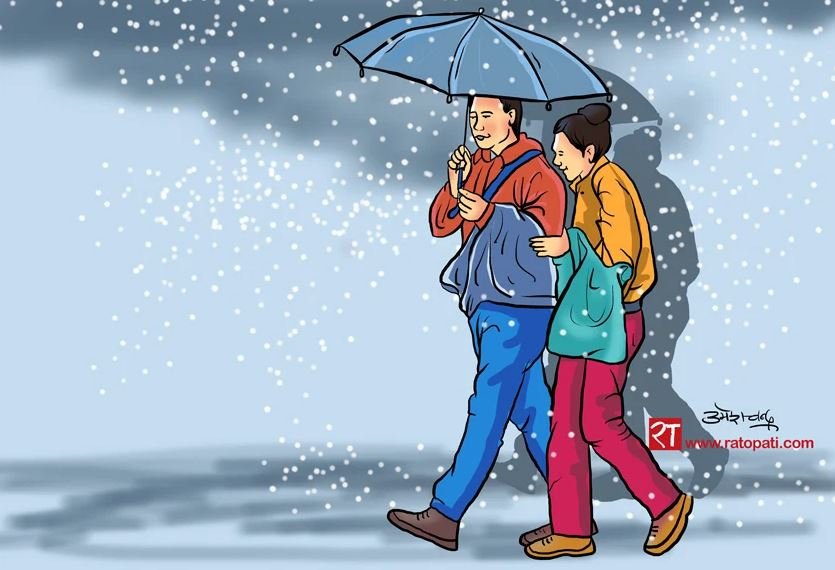

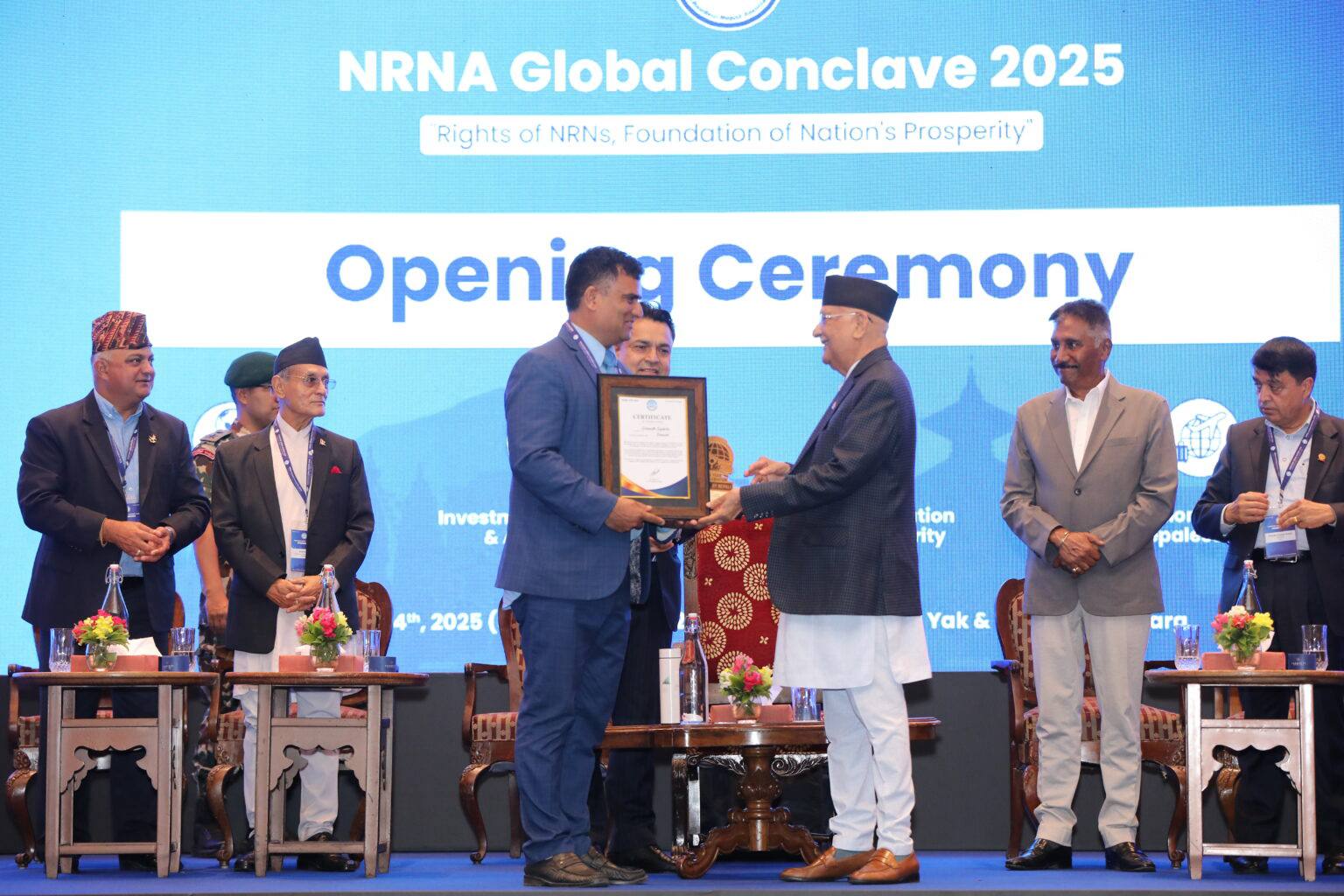
Leave Comment